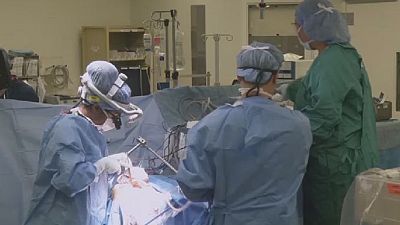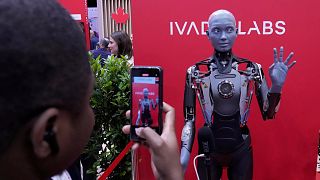USA
Genette Hofmann donated a small piece of her brain to science last month in Seattle, United States.
The 57 year old woman discovered she needed an operation after her surgeon found the trigger for the epileptic seizures which have disrupted her life for 30 years.
To get there, he teased out a small piece of healthy tissue, the size of a lima bean, and with her blessing quickly sent it to some researchers, who were eager to study brain cells while they were still alive.
“Because of the nature of those surgeries, we are often taking out a small part of normal brain that’s next to, or over the parts of the brain that are causing seizures. So in order to do these surgeries, that part of the brain is going to be removed regardless and that offers us the chance to use that brain to advance science”. Dr. Andrew Ko, a neurologist at the University of Washington Medical Centre said.
Most people with epilepsy do not need surgery and can control their seizures with medications. But when surgery is necessary, research scientists can ask to piggyback on the procedures for a rare chance to study the brain directly.
Jonathan Ting of the Allen Institute for Brain Science says live tissue is essential for this research.
“If the cells were not viable, for example, in postmortem tissue, after a person passes away, you wouldn’t be able to measure dynamic properties of cells. For example, the electrical activity”, Ting said.
Hofmann, has joined a long list of epileptic patients who have helped scientists unlock the fundamental secrets of the brain. She says she is proud to contribute to science in such a unique way.
“The whole idea of helping someone live a better life, I never thought that I could be that effective, you know I’m not a doctor or a scientist, so it gives me honour to know that I may help someone’s daughter, or son, or relative to have a better life”, Hofmann said.
Epilepsy disrupts the electrical activity of the brain, producing recurring seizures involving strange sensations, behaviors, emotions and sometimes loss of consciousness.
For decades, studies of epileptic patients have revealed secrets of the brain, like how the two halves operate differently.
These studies have also provided key insights into how memory works and the relationship between the mind and the brain.
AP














01:24
U.S. deports 95 Haitians amid policy shift as repatriates face uncertain future
01:00
Giant mural in France critiques Trump's immigration policies
01:17
Trump downplays US State Department's failure to release more Epstein files
01:49
Nobel Laureate David Gross calls for international cooperation to prevent nuclear war
01:19
"Such good English": Trump compliments Liberian president, a native English speaker
02:06
UN report reveals 4.6 million people struggling with food insecurity